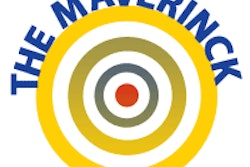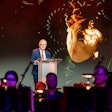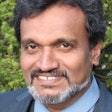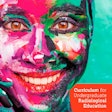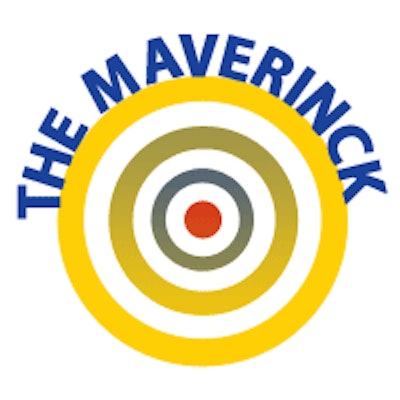
As I mentioned in the short excursion on ethics some weeks ago, the implications of moral philosophy in medicine is a broad field.1 Among the issues not mentioned, is the doctors' proof of professional skills.
When you enter doctors' offices in certain countries, you will find the walls plastered with diplomas and certificates -- proof and evidence of the soundness and quality of the occupant's knowledge. This custom is becoming increasingly popular in much of Europe. Every time I step into such an office or waiting room, I remember the description of a champagne bottle in the first chapter of Thomas Mann's novel Confessions of Felix Krull, Confidence Man:
"My poor father owned the firm of Engelbert Krull, makers of the now discontinued brand of champagne Loreley Extra Cuvée. ... Its label had been designed by my godfather and bore a number of coats of arms and stars ... all in gold letters. ... Unfortunately, it appears that the quality of the wine was not entirely commensurate with the splendor of its coiffure."
Some people believe that quality control has become easier with the arrival of computers and the Internet. For instance, hotel evaluations are at your fingertips with websites such as TripAdvisor.com. The site awards its "Certificates of Excellence":
The Certificate of Excellence award honors hospitality excellence. The accolade is given only to establishments that consistently achieve outstanding traveler reviews on TripAdvisor, and is extended to qualifying businesses worldwide. Approximately 10 percent of accommodations listed on TripAdvisor receive this prestigious award.
 Dr. Peter Rinck, PhD, is a professor of diagnostic imaging and the president of the Council of the Round Table Foundation (TRTF) and European Magnetic Resonance Forum (EMRF).
Dr. Peter Rinck, PhD, is a professor of diagnostic imaging and the president of the Council of the Round Table Foundation (TRTF) and European Magnetic Resonance Forum (EMRF).Ten percent doesn't sound like much, but in absolute numbers it's a lot. There is no costly "peer review," no reliable verification of the evaluation. The result is a new industry of ghostwriters producing everything from horror stories, half-truth reports, subliminal positive and negative descriptions, or five-star hallelujahs. The users have real customers' evaluations and marketing lies at their fingertips -- or, better, mouse clicks. One can't distinguish one from the other.
Repair shops and sales offices of minor and major companies, manufacturers of medical and scientific equipment included, turn into "Centers of Excellence," and on the Internet one can obtain certificates for achievements and doctorates for "lifetime experience." The same holds for medical imaging and neighboring disciplines.
The New York Academy of Sciences, for example, is one of the oldest scientific societies in North America. It was founded in 1817, has more than 25,000 members today, and is run like an automobile club. Nearly everybody can apply and become a member. I find it rather amusing when somebody tells me that he is an "elected member" of the New York Academy of Sciences since joining the society is -- more or less -- three mouse clicks and a credit card charge away.
Elsewhere, it has also come into fashion to present or sell "Certificates of Excellence" before excellence has been shown. One even can apply for it. The European Congress of Radiology (ECR) and the European Society of Radiology (ESR) with its nearly 20 daughter societies have started to display a business flair of their own that may suit such professional societies, but not learned scientific societies. ESR and its daughters mutually endorse each other and arrange "board" examinations -- for instance in cardiac radiology, the European Board of Cardiac Radiology (EBCR) Diploma confirms specific competence of radiologists to perform, interpret, and report cardiac CT and MR independently for between 400 euros and 600 euros.
It's a fine incentive for young radiologists, as is the diploma of European School of Radiology (ESOR). The European Society of Magnetic Resonance in Medicine and Biology (ESMRMB) issues "Certificates of Excellence" to members -- the price of excellence is 200 euros. Showing such a certificate when applying for a new position might turn out to be counterproductive. Producing hot air might be advantageous in business but not in medicine and science.
Credibility is a volatile quality. It's difficult to acquire, more difficult to keep -- and fast destroyed. The change of scientific societies into commercial organizations is an unpleasant side effect of outsourcing their administration and the organization of their events and conferences. It is a lingering process moving from academia and medicine into business, stretching over decades. It usually, though not necessarily, leads to a decline of reputation.
ESR and ECR are trying to represent European radiologists as a professional society. This would require independence of commercial and group interests, a solid base in the craft of radiology, a background in scientific development, transparent finances, and -- last but not least -- credibility.
There is a difference between a certification of attendance -- which today is a necessity to get continuing medical education credits -- and a certificate of excellence, which signifies a competent and qualified statement by a senior academic of higher-than-average scientific achievements in a research field. This new business model meets with criticism and disapproval. Rightly so, university presidents and faculty deans complain that certain certificates and diplomas issued by professional associations are just empty shells and undermine controllably acquired knowledge and degrees. It also sheds a strange light upon the quality of certain learned societies and definitely on professional societies.
On the other hand, universities have heavily contributed to the scientific and educational decline in the sciences and the dilution of formerly clear terms such as "excellence," "distinction," "high quality," "merit" ... listening to the chant of politicians declaring overnight certain universities or colleges elite institutions is excusable. Believing, however, such declarations are a sign of naivety or asininity. One doesn't become good and famous overnight, and certifications are useless if one agrees on low standards. Close ties between universities, the major funding institutions, and the political caste can easily undermine the stability of education and research.
More content, less wrapping!
Dr. Peter Rinck, PhD, is a professor of diagnostic imaging and the president of the Council of the Round Table Foundation (TRTF) and European Magnetic Resonance Forum (EMRF).
Reference
Rinck, PA. Why all the sudden fuss about ethics? AuntMinnieEurope.com. http://www.auntminnieeurope.com/index.aspx?sec=nws&sub=rad&pag=dis&ItemID=608220. 15 May 2013.
The comments and observations expressed herein do not necessarily reflect the opinions of AuntMinnieEurope.com, nor should they be construed as an endorsement or admonishment of any particular vendor, analyst, industry consultant, or consulting group.




